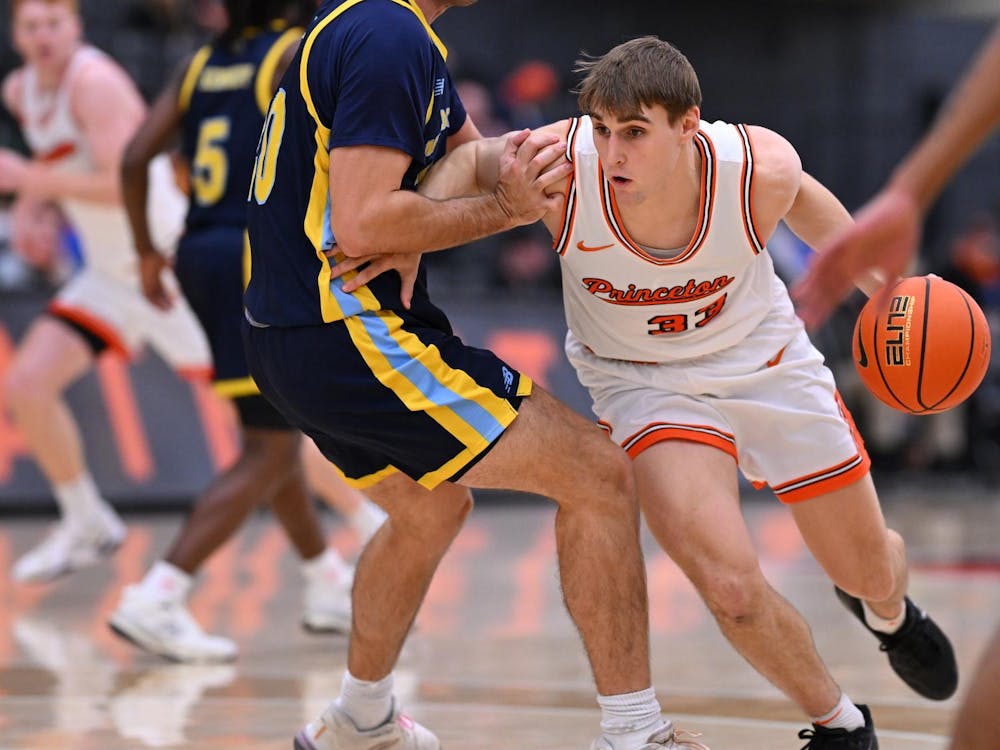When most people think of volleyball, they think of people relaxing on the beach, taking in the sun and gently hitting a ball around.
Scott Dore thinks of returning an 80-mph serve and digging the ball off the gym floor while it is 30 degrees outside.
Even when growing up in California, the senior co-captain didn't play much beach volleyball.
"Usually, at the beach I would just hang out and go in the water," the Newport Beach native said.
Like many high school kids, Dore stuck with football and basketball. It was not until the spring season that he thought about trying another sport.
"I didn't really have anything to do in the spring so I thought about playing baseball, track, tennis and volleyball," he said. "I just decided on volleyball and ended up liking that more than basketball and ended up being better at it, too."
That decision produced an Orange County All-Star four years later.
California has always been a hotbed for volleyball players. A majority of the top college teams are located in the state and most of the best collegiate players hail from southern California. This is evidenced by the seven members of Princeton's 13-man squad and a heated rivalry between Dore's and junior Dennis Alshuler's Newport Beach high schools.

In fact, the Tigers start every year with a trip out to the West Coast, where they play four California universities. After losing the first three matches (including one to No. 8 UC-Irvine), Princeton came away with a victory over Hope International.
"It's tough because [the California] schools start playing matches in the middle of January so a lot of these schools came in with six or seven matches while we hadn't played any," Dore said. "With reading period, exams and Intersession, it gets kind of hard."
The trip does give the team good experience when coming back to face the likes of Penn State and George Mason in the Eastern Intercollegiate Volleyball Association. Penn State is ranked No. 10 in the country and George Mason knocked Princeton out of the EIVA Tournament last year.
As the middle hitter, Dore must rely on both his reaction time and technique, two of the most important qualities for a volleyball player to have.

"Reaction time is important and so is quickness," he said. "It's kind of instinctive. The ability to stick your arm out and dig the volleyball has to come naturally and quickly.
"You need proper technique in order to make the most of your athleticism. Pure athleticism can only get you so far."
Unlike most other sports, men's volleyball does not have much Ivy League competition. Only Harvard has a varsity program, and it is in Division III, whereas the Tigers are part of Division I. The other six schools have club teams.
However, there is an Ivy tournament each year, with all eight teams competing.
"Every year we've played in it we've faced and beaten Harvard in the finals, and every year they come into the match thinking that they're going to win and take us down," Dore said. "But they never have."
Princeton hopes that they can also get by league rivals. Dore credits an improved work ethic in practice and hints at the possibility of winning the EIVA.
"I think this year's team is more committed to success," he said. "Practices are a lot more competitive. Last year, it wouldn't seem like a game-type situation where you leave everything out on the court, but I think that's changed.
"Hopefully it's going to translate into a better finish on the court."







